Learn French Idioms the Easy Way
Welcome to ouiTeach! I’m Alain, a certified French teacher. In this lesson, I will introduce and explain 20 French idiomatic expressions that are often challenging for French learners. So, stick around until the end of the video, as you’ll acquire new expressions to speak like a native.
French Expression 1 – “Être à cran” (To Be On Edge)
Definition:
“Être à cran” is an idiom that means to be very tense, nervous, or irritable due to a stressful or annoying situation. When someone is “à cran,” it generally indicates they’re on the verge of losing patience or reacting excessively due to pressure or stress.
Example: “Elle est tellement à cran qu’elle a du mal à dormir.”
“She’s so on edge that she has trouble sleeping.”
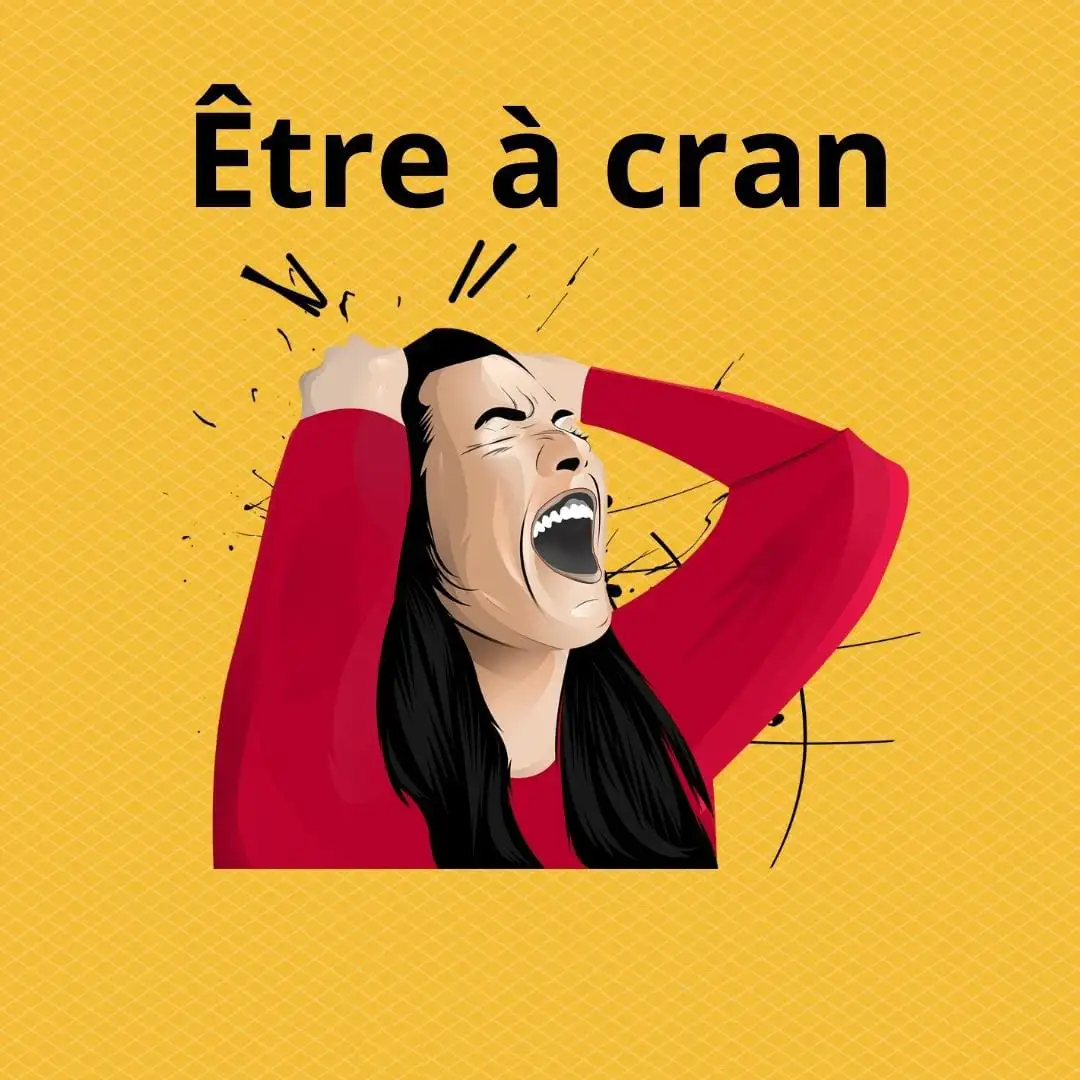
French Expression 2 – “Être à la bourre” (To Be Running Late)
Definition:
“Être à la bourre” is a familiar expression that means to be running late, not arriving on time for a planned appointment, commitment, or event. It’s commonly used to describe a situation where someone fails to be punctual.
Example: “Désolé, je suis à la bourre, je devrais être là à 15h00.”
“Sorry, I’m running late; I should be there at 3:00 PM.”

French Expression 3 – “Mettre du beurre dans les épinards” (To Butter One’s Bread / To Butter Up One’s Life)
Definition:
“Mettre du beurre dans les épinards” means to improve one’s financial situation or living conditions. This expression refers to the idea that butter adds richness or flavor to spinach, which is often considered a simple staple food.
Example: “Ce nouvel emploi m’a vraiment permis de mettre du beurre dans les épinards.”
“This new job has really allowed me to improve my financial situation.”

French Expression 4 – “Casser sa pipe” (To Kick the Bucket)
Definition:
“Casser sa pipe” is a familiar expression that means to die. The phrase dates back to the 19th century and is derived from soldiers whose pipes, often made of fragile clay, would break when they died during military operations.
Example: “Il était très vieux et malheureusement, il a cassé sa pipe.”
“He was very old, and unfortunately, he kicked the bucket.”

French Expression 5 – “Avoir un cœur d’artichaut” (To Be Fickle in Love)
Definition:
“Avoir un cœur d’artichaut” means that someone falls in love easily and frequently. It’s a comparison with the tenderness of an artichoke heart.
Example: “Il a vraiment un cœur d’artichaut, il est encore tombé amoureux !”
“He truly has a fickle heart; he fell in love again!”
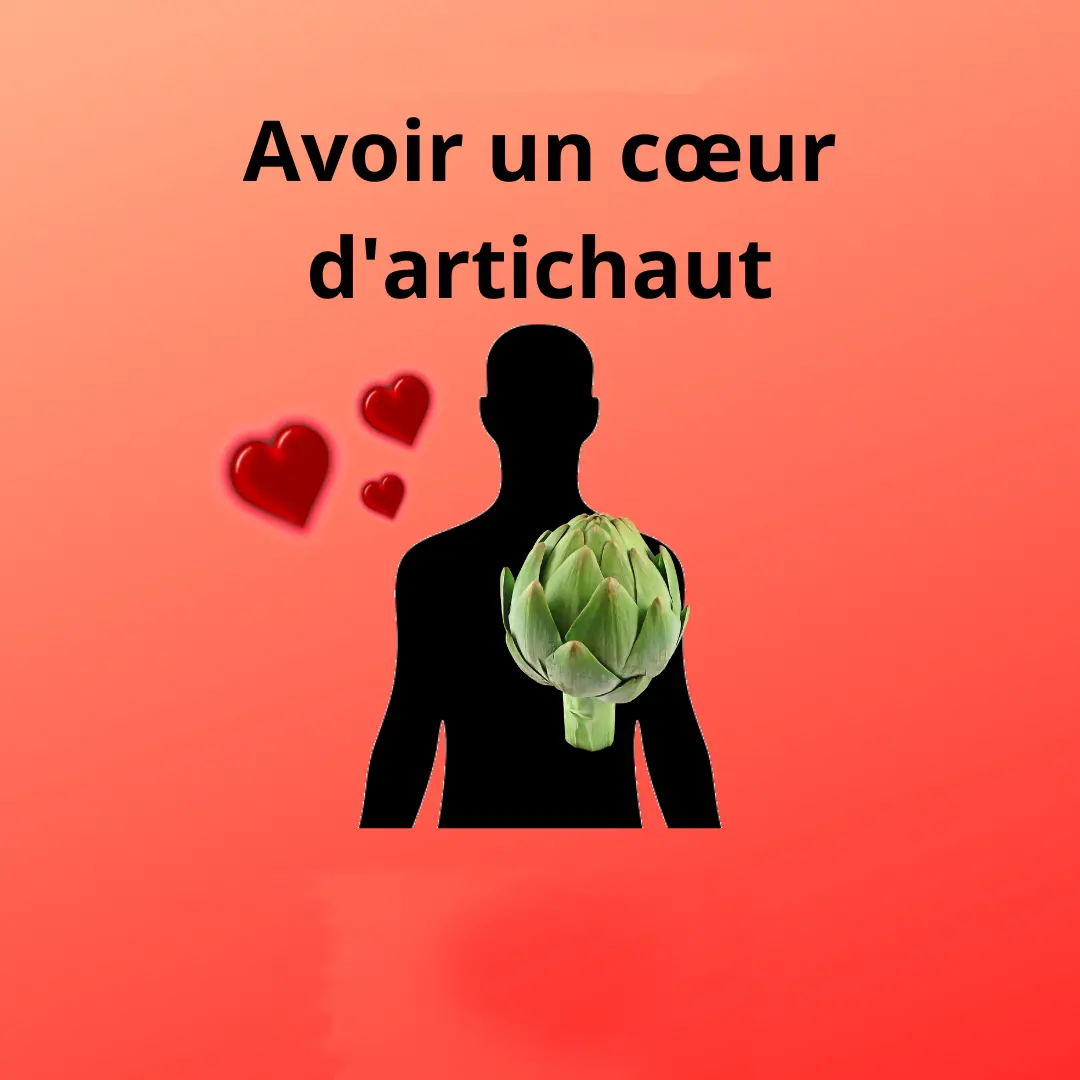
French Expression 6 – “Avoir le cœur sur la main” (To Have a Heart of Gold)
Definition:
“Avoir le cœur sur la main” means that a person is generous, ready to help others, and willing to give assistance or love without hesitation.
Example: “Elle a le cœur sur la main, elle est toujours prête à aider les gens.”
“She has a heart of gold; she’s always ready to help people.”

French Expression 7 – “Avoir le coup de foudre” (To Have a Crush at First Sight)
Definition:
“Avoir le coup de foudre” means to fall in love suddenly and intensely with someone at first sight or first encounter. It’s an extremely intense and immediate romantic experience.
Example: “Lorsqu’il l’a vue pour la première fois, il a eu un coup de foudre pour elle.”
“When he saw her for the first time, he had a love at first sight for her.”
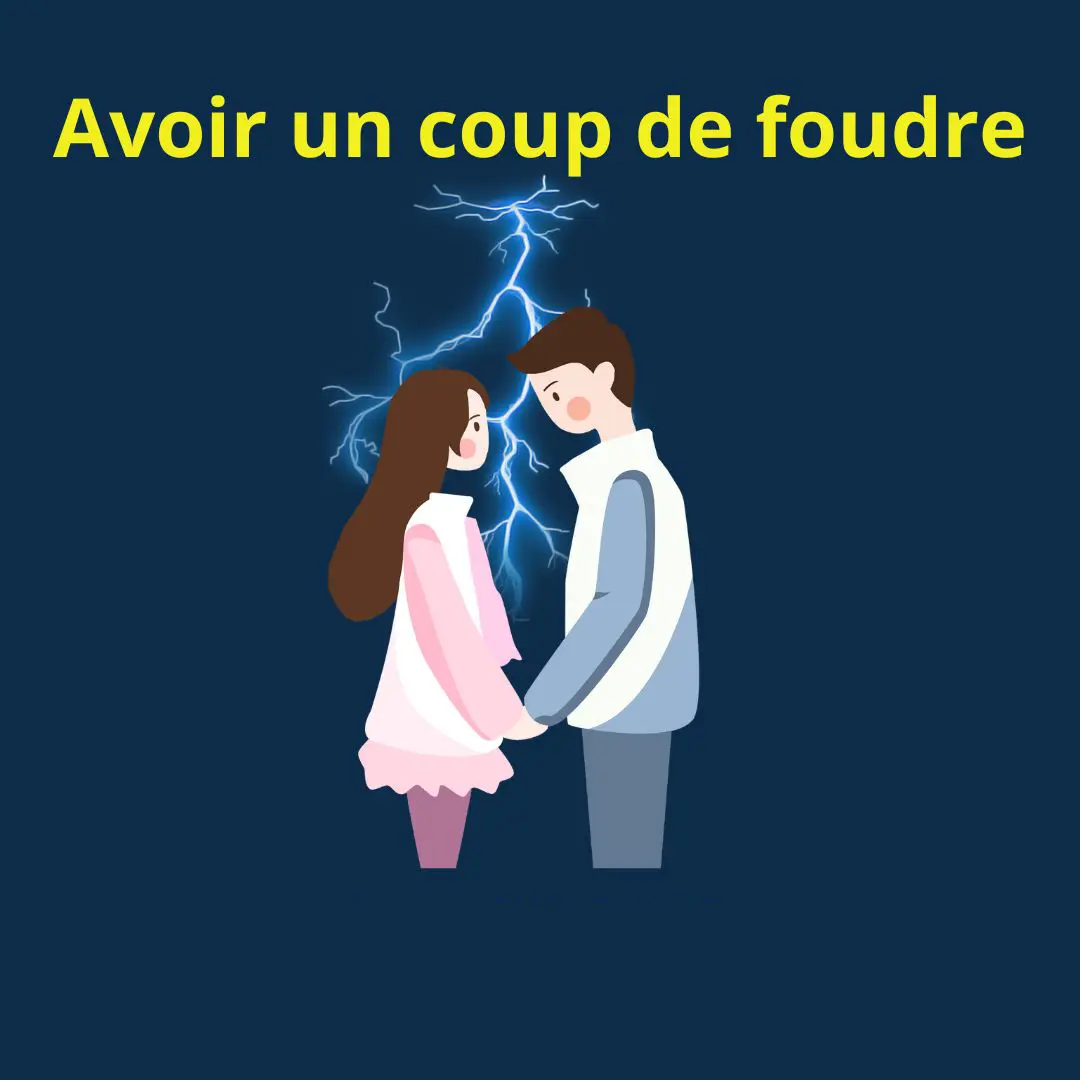
French Expression 8 – “Être dans la lune” (To Be Lost in Thought)
Definition:
“Être dans la lune” means to be distracted, lost in thought, daydreaming, often to the point of not paying attention to one’s surroundings.
Example: “Pendant le cours il ne retient rien, il est toujours dans la lune.”
“During the class, he doesn’t retain anything; he’s always lost in thought.”

French Expression 9 – “Être à l’ouest” (To Be Out to Lunch)
Definition:
“Être à l’ouest” is a familiar expression that means to be completely distracted, lost, or confused; to be absent-minded and not understanding what’s going on.
Example: “Pendant la réunion, il ne suivait plus, il était complètement à l’ouest.”
“During the meeting, he wasn’t following anymore; he was completely out to lunch.”

French Expression 10 – “Avoir un faible pour quelqu’un” (To Have a Soft Spot for Someone)
Definition:
“Avoir un faible pour quelqu’un” means to have a special attraction, interest, or affection for someone. It doesn’t necessarily imply deep love but rather a particular interest or fondness.
Example: “Elle a toujours eu un faible pour lui, même depuis l’école primaire.”
“She has always had a soft spot for him, even since elementary school.”

French Expression 11 – “Faire la grasse matinée” (To Have a Lie-In)
Definition:
“Faire la grasse matinée” is often used to describe a morning where one can sleep longer than usual without worrying about getting up early to work or take care of daily tasks. This expression has its origins in the Middle Ages in France, where “grasse” meant “abundant” or “rich,” implying a morning rich in sleep.
Example: “J’ai fait la grasse matinée samedi et je ne me suis réveillé qu’à midi.”
“I had a lie-in on Saturday, and I didn’t wake up until noon.”
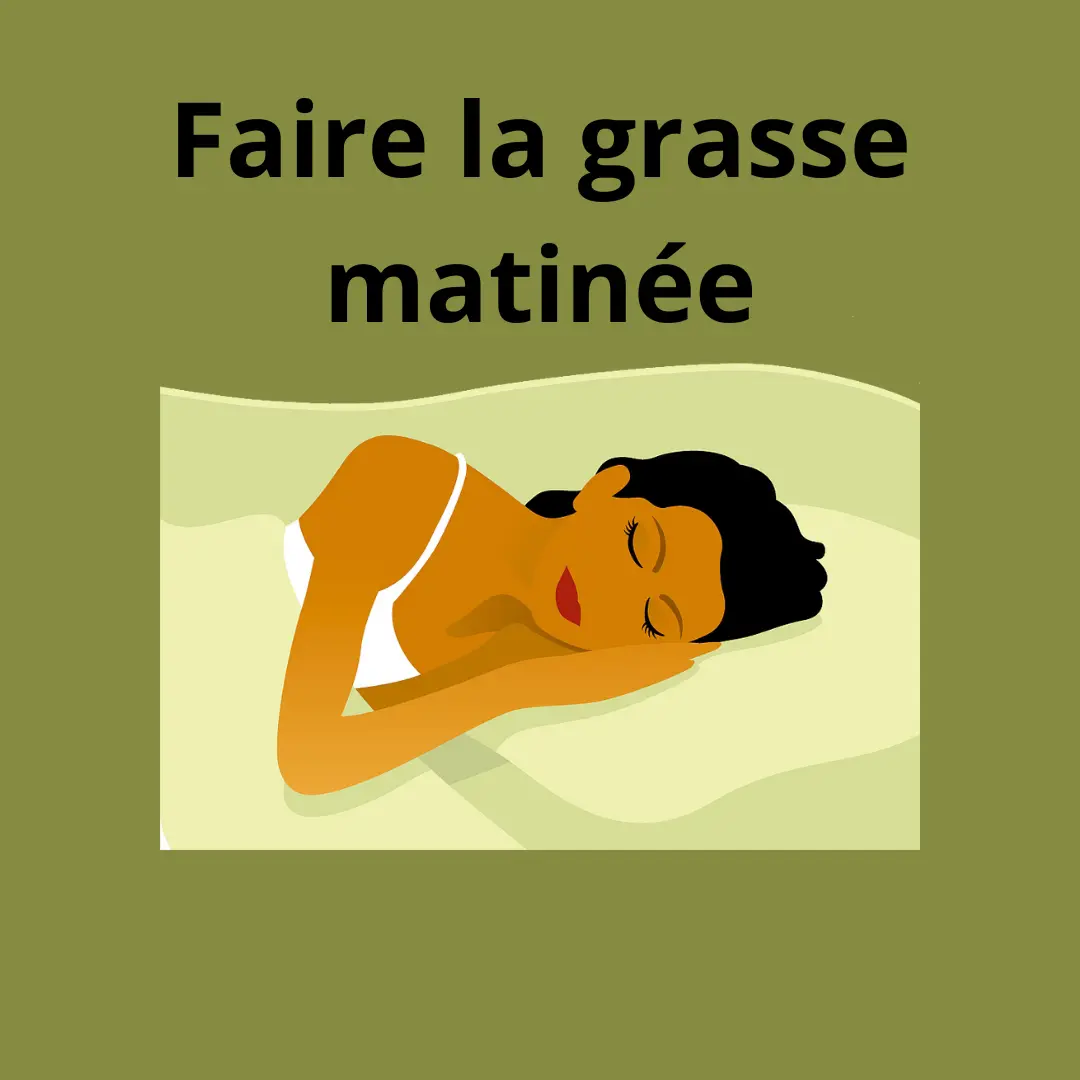
French Expression 12 – “Avoir la gueule de bois” (To Have a Hangover)
Definition:
“Avoir la gueule de bois” is an expression that means experiencing the unpleasant effects of excessive alcohol consumption, typically the day after a heavy night of drinking. Common hangover symptoms include headaches, nausea, fatigue, and dehydration.
Example: “Après la fête d’hier soir, j’ai une sacrée gueule de bois aujourd’hui.”
“After the party last night, I have a serious hangover today.”
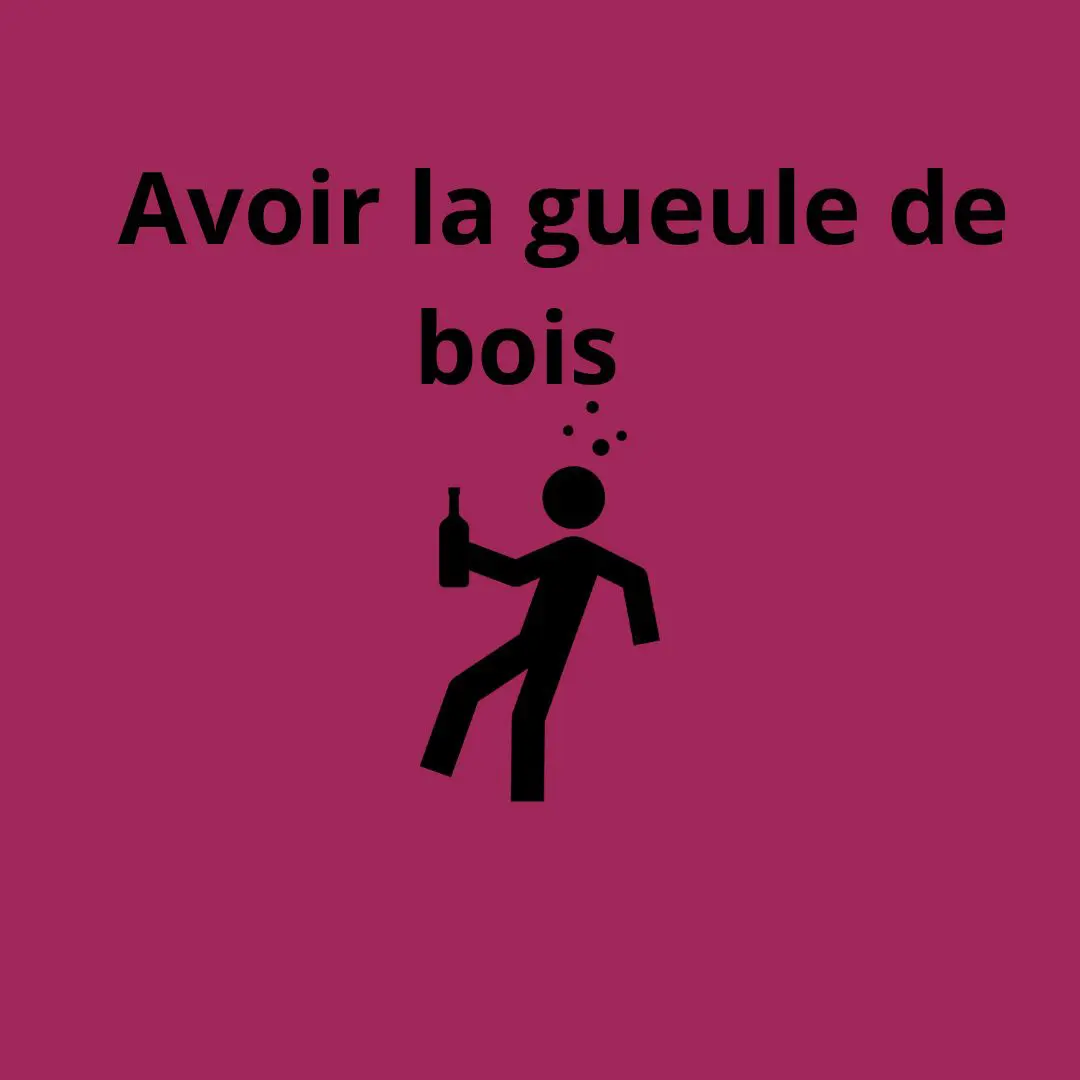
French Expression 13 – “Mettre de l’eau dans son vin” (To Water Down One’s Wine)
Definition:
“Mettre de l’eau dans son vin” is a French expression that means to moderate one’s behavior, soften one’s words, or lessen one’s demands. It implies being more accommodating or less strict in a given situation.
Example: “Pour que la négociation aboutisse, il a dû mettre de l’eau dans son vin.”
“In order for the negotiation to succeed, he had to water down his wine.”
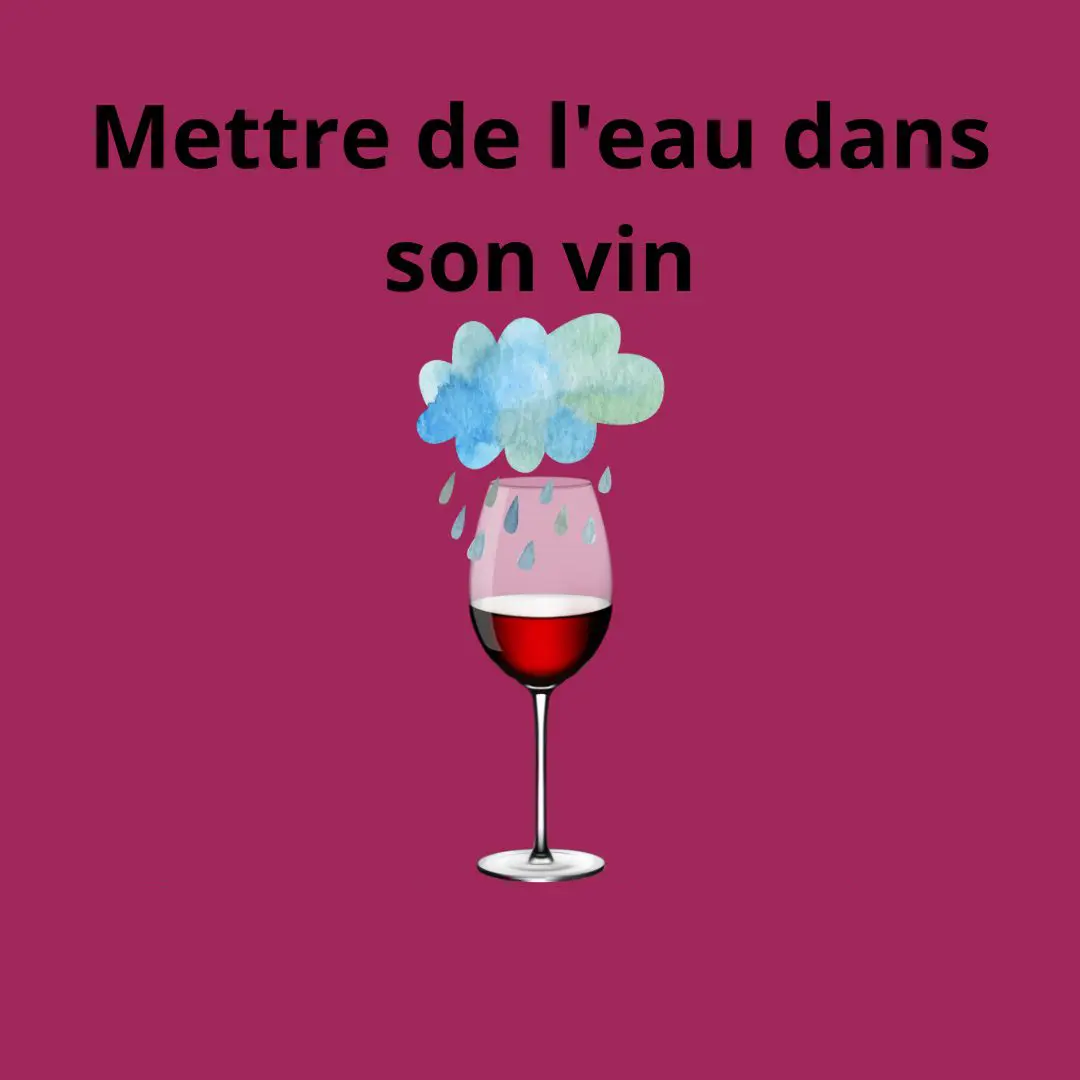
French Expression 14 – “Mettre son grain de sel” (To Put in One’s Two Cents)
Definition:
“Mettre son grain de sel” is a familiar expression that means giving one’s opinion or point of view, often unsolicited, involving oneself in a conversation or situation by adding one’s perspective, even when it’s not needed or requested.
Example: “Pendant la réunion, il ne pouvait pas s’empêcher de mettre son grain de sel dans toutes les discussions.”
“During the meeting, he couldn’t help but put in his two cents in every discussion.”
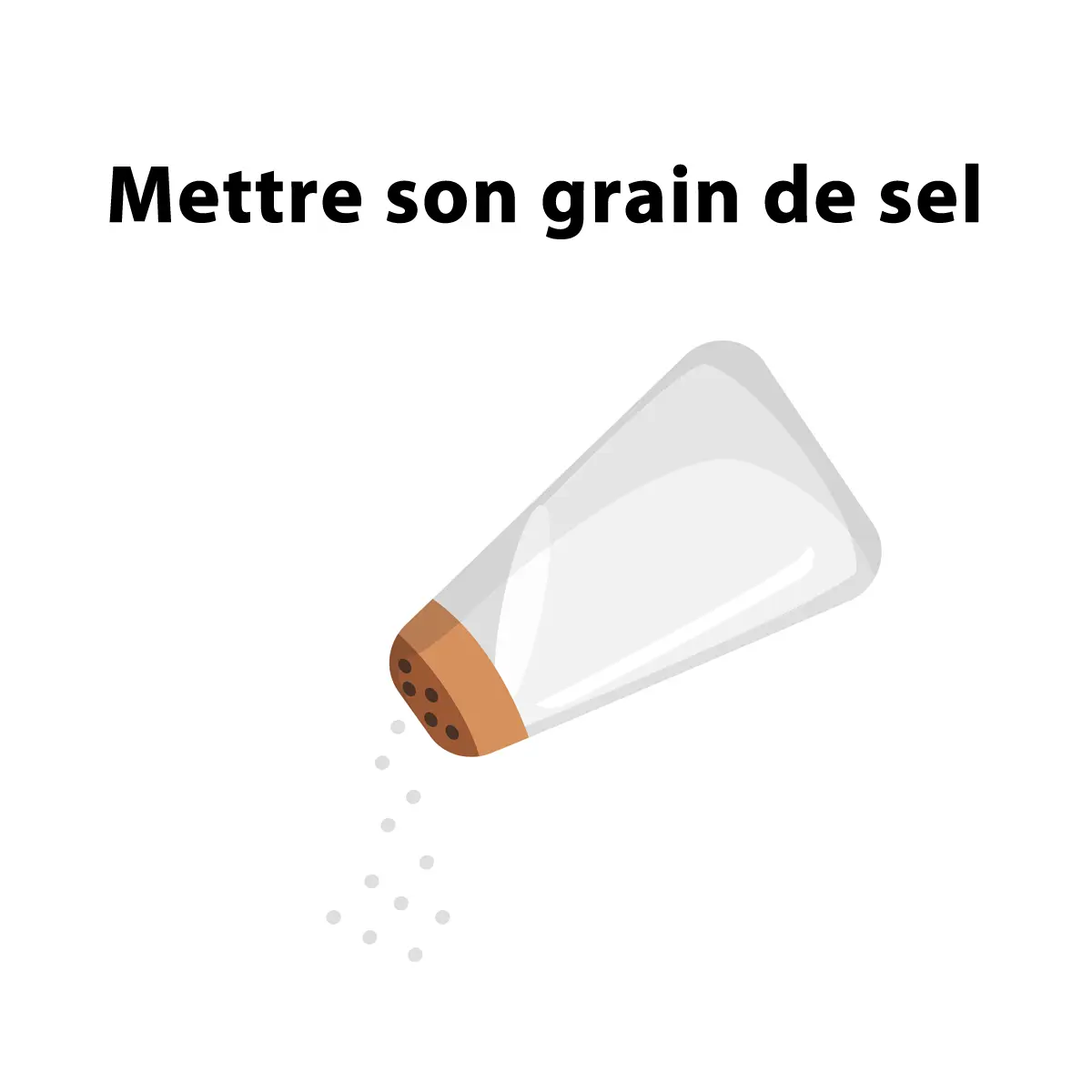
French Expression 15 – “Avoir du pain sur la planche” (To Have One’s Plate)
Definition:
“Avoir du pain sur la planche” is a French expression that means having a lot of work or tasks to accomplish. It typically implies a busy schedule or significant responsibilities that require a lot of effort and attention.
Example: “Avec tous ces projets en cours, j’ai vraiment du pain sur la planche.”
“With all these ongoing projects, I really have my plate full.”

French Expression 16 – “Poser un lapin” (To Stand Someone Up)
Definition:
“Poser un lapin” is a familiar French expression that means not showing up for a planned meeting, leaving the other person waiting in vain. It essentially involves breaking a commitment or appointment.
Example: “Il m’a posé un lapin au restaurant, je l’ai attendu une heure, mais il n’est jamais venu.”
“He stood me up at the restaurant; I waited for an hour, but he never showed up.”
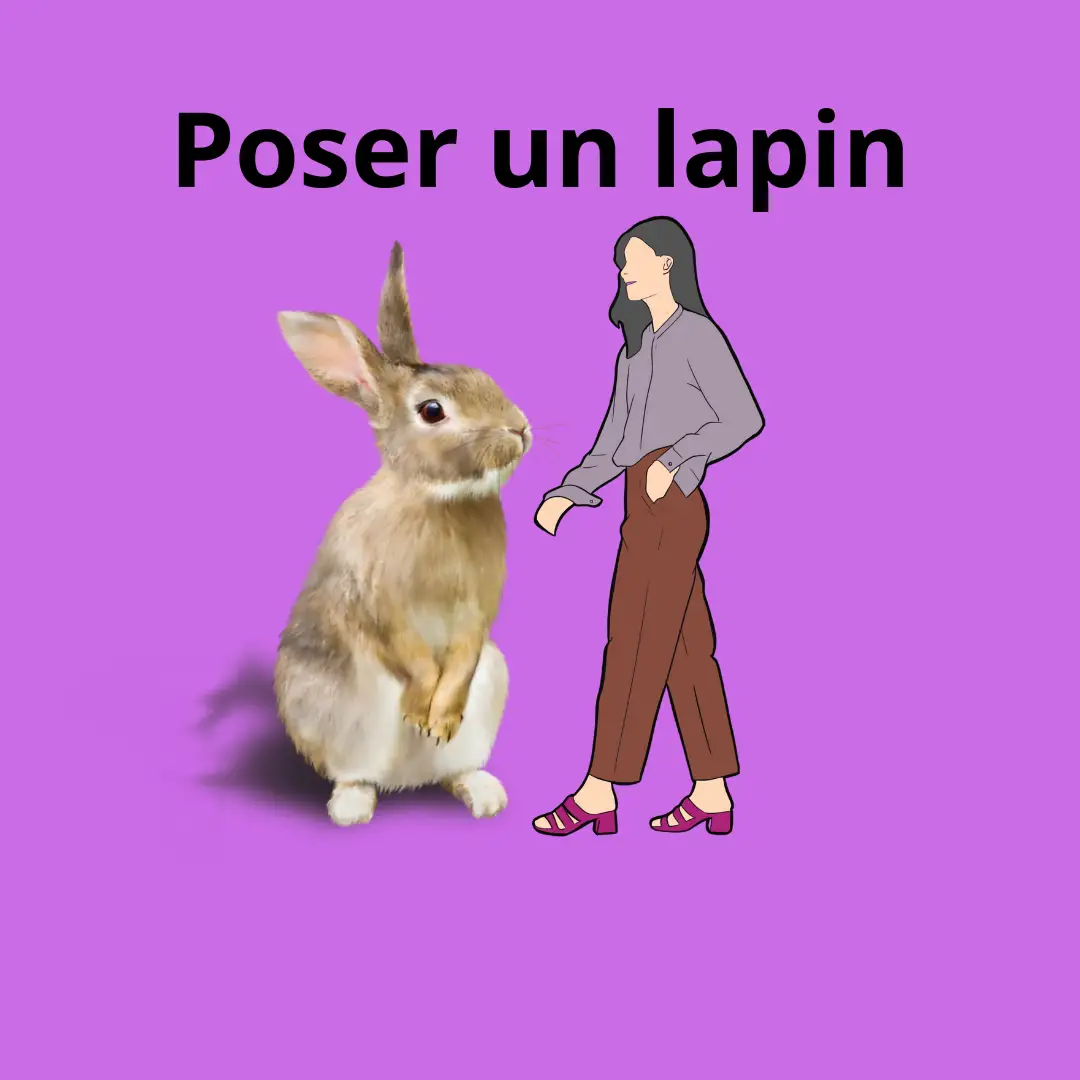
French Expression 17 – “Se tourner les pouces” (To Twiddle One’s Thumbs)
Definition:
“Se tourner les pouces” is a French expression that means doing nothing, being bored, or wasting time with no productive activity. When someone “se tourne les pouces,” it suggests inactivity or waiting without doing anything.
Example: “Pendant la réunion, il se tournait les pouces, il ne prenait pas part à la discussion.”
“During the meeting, he was twiddling his thumbs, not participating in the discussion.”

French Expression 18 – “Prendre la poudre d’escampette” (To Make a Run for It)
Definition:
“Prendre la poudre d’escampette” is a French expression that means to flee quickly or discreetly, escaping from a difficult situation, trouble, or problems. It typically involves sudden and often hasty escape.
Example: “Le voleur a pris la poudre d’escampette en entendant la police arriver.”
“The thief made a run for it upon hearing the police approaching.”

French Expression 19 – “Prendre son pied” (To Have a Blast)
Definition:
“Prendre son pied” is a familiar French expression that means having fun, experiencing satisfaction or pleasure, often in a sexual context. However, it can also be used more generally to describe having a good time or enjoying an experience.
Example: “Hier soir, à la fête, j’ai vraiment pris mon pied!”
“Last night, at the party, I really had a blast!”

French Expression 20 – “Coûter les yeux de la tête” (To Cost an Arm and a Leg)
Definition:
“Coûter les yeux de la tête” means that something is extremely expensive, to the point of being very costly. It implies that the price is so high that it seems exorbitant, as if one had to pay the price of their eyes.
Example: “L’achat de cette voiture de luxe coûte vraiment les yeux de la tête.”
“The purchase of this luxury car really costs an arm and a leg.”
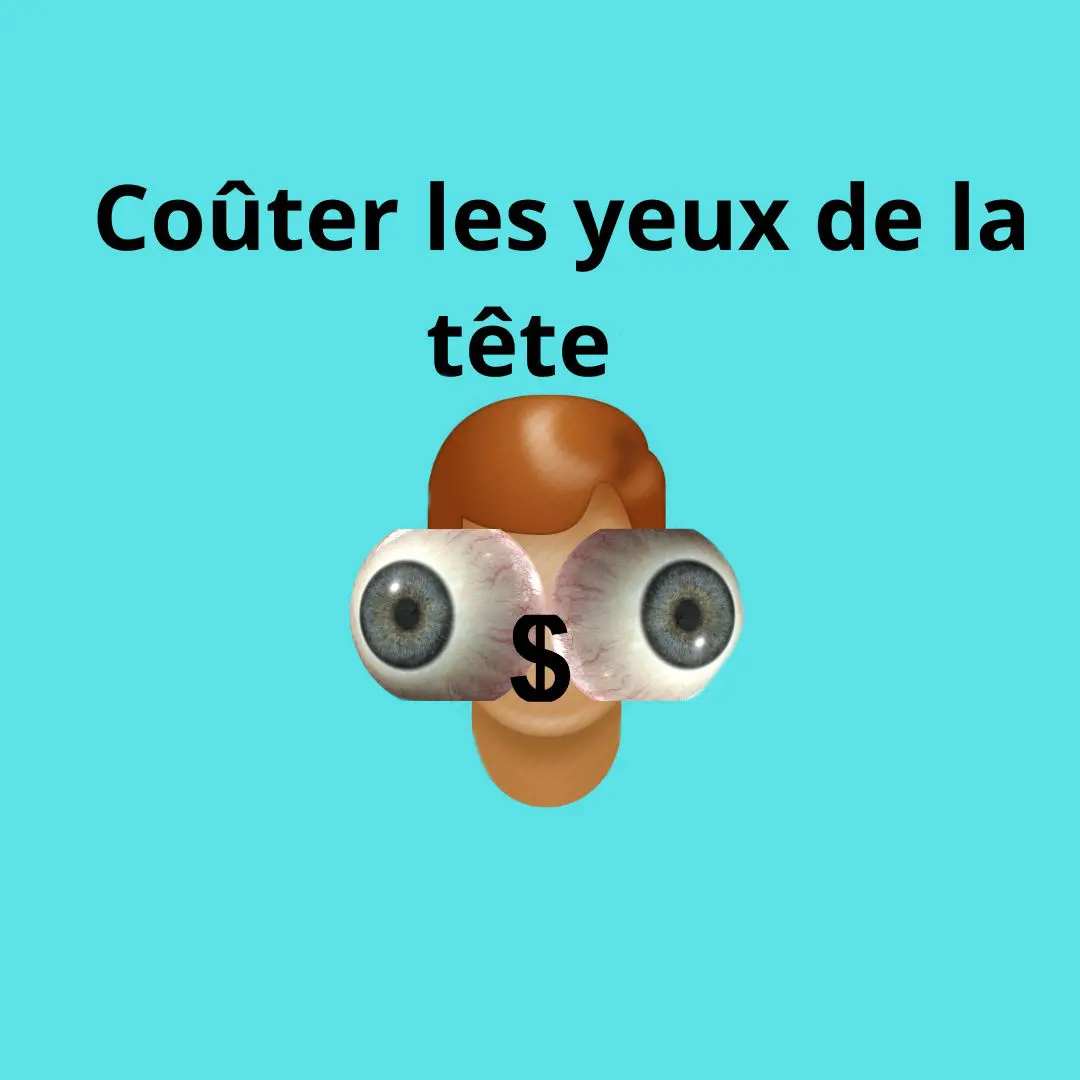
Final Words on French Idioms
To sum up, learning these colloquial French phrases is more than just picking up language skills—it’s also about discovering the rich tapestry of French communication and culture. So go ahead and add these vibrant phrases to your language repertoire, and see how the variety of idioms will make your interactions come to life! Keep in mind that learning a language is an adventure, and these idioms are your treasure map to a more meaningful conversation and understanding. Cheers to learning!






